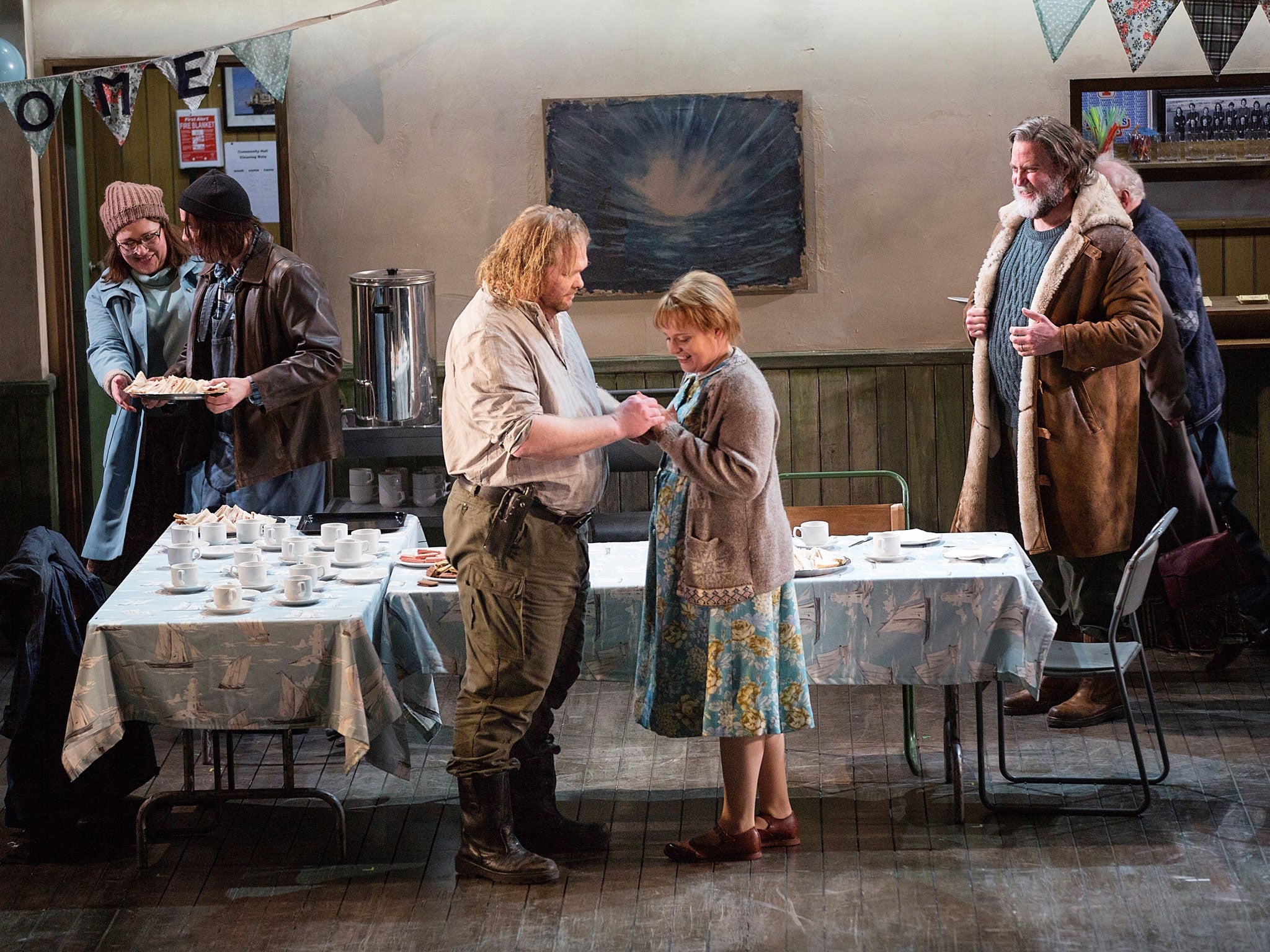Classical review: The Flying Dutchman - Love among the sewing machines and sarnies
A perpetual voyager is saved by selflessness and a terrific chorus

Your support helps us to tell the story
From reproductive rights to climate change to Big Tech, The Independent is on the ground when the story is developing. Whether it's investigating the financials of Elon Musk's pro-Trump PAC or producing our latest documentary, 'The A Word', which shines a light on the American women fighting for reproductive rights, we know how important it is to parse out the facts from the messaging.
At such a critical moment in US history, we need reporters on the ground. Your donation allows us to keep sending journalists to speak to both sides of the story.
The Independent is trusted by Americans across the entire political spectrum. And unlike many other quality news outlets, we choose not to lock Americans out of our reporting and analysis with paywalls. We believe quality journalism should be available to everyone, paid for by those who can afford it.
Your support makes all the difference.Harry Fehr, director of the new Scottish Opera production of The Flying Dutchman, recently confessed that he would not like to sit next to Richard Wagner at dinner. This is not especially controversial: for all but the most uncritical fans, dining with an antisemitic, self-mythologising champagne revolutionary would be a grim prospect. But Fehr's production, so sympathetic in its depiction of an isolated community torn apart by the deathless Dutchman and his ghostly crew, betrays his distaste for the qualities that made Wagner Wagner.
As with Oliver Mears's staging for Northern Ireland Opera, Fehr's Dutchman is set in the 1970s. Using Wagner's original Scottish scenario, designer Tom Scutt creates a concrete harbourside suggestive of Fraserburgh, complete with a greasy spoon, a rotting pier for the Helmsman (Nicky Spence) to canoodle under with his girl, and a community centre where the womenfolk prepare for the return of the sailors with sewing machines and sliced bread. Instead of Gothic mists, we have a film of steam on the café window. Instead of Daland, the avaricious captain who sells his daughter to the Dutchman, we have Donald (Scott Wilde), a local big man in a sheepskin coat. Instead of Erik, we have George (Jeff Gwaltney), a crazed Wee Free minister, while Rachel Nicholls's Senta, the towering presence here, is less the Romantic neurotic than a volatile, overgrown child, watched carefully by Sarah Pring's mother hen Mary.
Fehr's interest is human rather than mythical. Thrillingly focused and agile, Nicholls sings her heart out, strengthening Senta's character in each scene. Her first encounter with Peteris Eglitis's weary Dutchman is staged as a move-for-move repetition of the preceding dialogue, with Mary and Daland mouthing the lines they have just sung. Fehr's second innovation is to swamp the shingle with convulsing ghost brides. His third suggests either that Senta's sacrifice has worked or that it was unnecessary, as George shoots the Dutchman dead. The chorus is excellent, Nicholls and Spence out- standing. Elsewhere, there are rough edges, vocally and instrumentally. After a bracing squall in the overture, conductor Francesco Corti fails to balance pit and stage with care.
The Romantic world view was treated with more tenderness and precision in Robin Ticciati's glorious City Halls performance with the Scottish Chamber Orchestra (*****). Here, in Weber's Overture to Der Freischütz, were the chill mists of the Gothic imagination, the upper strings silkily cleaving to the horns, the woodwind radiant, the allegro lithe and buoyant. Schumann's verdant First Symphony danced, all bloom and blush, with daring use of rubato, breathtaking pianissimi, solemn trombones and an exquisitely pitched cadenza from flautist Steffi Winker, the work's Beethovenian DNA emphasised by the lower strings.
Half-symphony, half-viola concerto, Berlioz's Harold in Italy loosens the ties to Beethoven (and the bass line). Soloist Antoine Tamestit produced cantabile lines of Italianate warmth and figures of wraithlike otherworldliness in the "March of the Pilgrims". An SCO Dutchman truly would be something to hear.
'Flying Dutchman': Festival Theatre, Edinburgh (0131-529 6000) to 19 Apr
Join our commenting forum
Join thought-provoking conversations, follow other Independent readers and see their replies
Comments